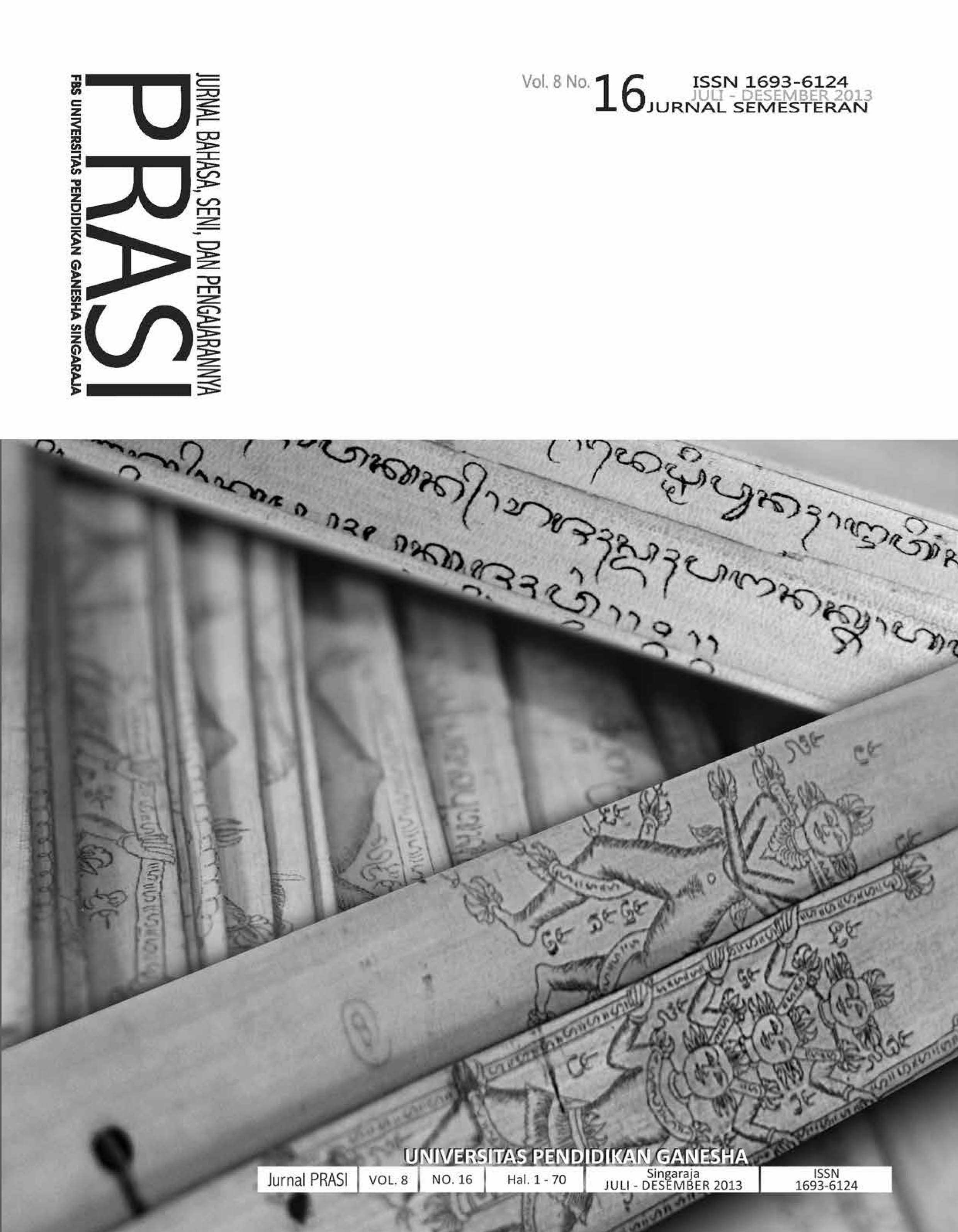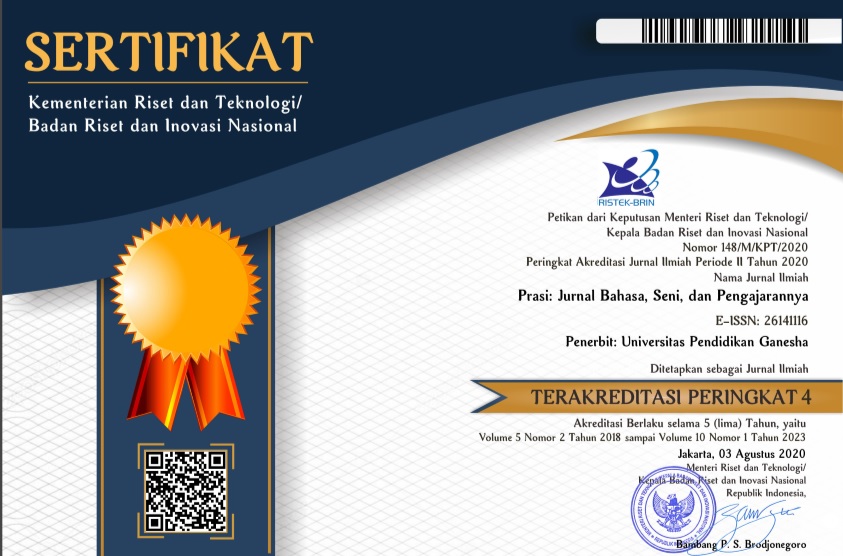POSISI DAN PENCAPAIAN UMBU LANDU PARANGGI DALAM ARENA SASTRA NASIONAL (TINJAUAN SOSIOLOGI SASTRA PIERRE BOURDIEU)
DOI:
https://doi.org/10.23887/prasi.v8i16.8999Abstract
This research aimed to describe Paranggi’s in the national literary field. Data sets in this research involved texts and propositions of artists, man of letters, or journalists related to Paranggi. The data sets were collected through the use of documentation and interview techniques. Data were analyzed by describing, comparing, associating, sorting or combining them with the Bourdieu’s theories including arena, habitus, capital, strategy, and other concepts discussing cultural production field. In the national literature, Paranggi has occupied objective position as a consecrated and legitimated poet in his field. Such consecration and legitimacy have been based on the principle of specific legitimacy, i.e. recognition provided by a group of other poets that actually serve as his competitors. In other words, the recognition has positioned him in the art edge as an autonomous artist and not positioned based on the principle of dominant and popular legitimacy. Paranggi has been consistently involved in the field of limited production or the so called high level art. In such a competition, he prefers symbolic capitals, prestige involvement, charisma, authority, consecration, or artistic celebration in poetry. Poetry becomes ideology in Paranggi’s life.
Keywords: Paranggi, position, and national literary field.
Downloads
Published
Issue
Section
License
Authors who publish with Prasi agree to the following terms:- Authors retain copyright and grant the journal the right of first publication with the work simultaneously licensed under a Creative Commons Attribution License (CC BY-SA 4.0) that allows others to share the work with an acknowledgment of the work's authorship and initial publication in this journal
- Authors are able to enter into separate, additional contractual arrangements for the non-exclusive distribution of the journal's published version of the work (e.g., post it to an institutional repository or publish it in a book), with an acknowledgment of its initial publication in this journal.
- Authors are permitted and encouraged to post their work online (e.g., in institutional repositories or on their website) prior to and during the submission process, as it can lead to productive exchanges, as well as earlier and greater citation of published work. (See The Effect of Open Access)


.png)
.png)









